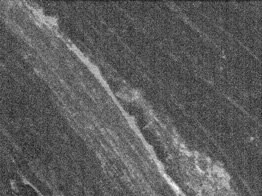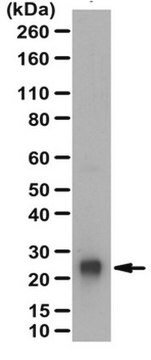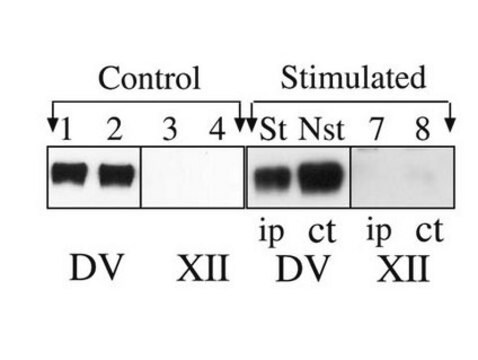NE1013
Anti-PGP9.5 (176-191) Rabbit pAb
liquid, Calbiochem®
Synonym(e):
Anti-Neuron Cytoplasmic Protein 9.5, Anti-Ubiquitin Thiolesterase L1, Anti-UCHL1
About This Item
Empfohlene Produkte
Biologische Quelle
rabbit
Qualitätsniveau
Antikörperform
serum
Antikörper-Produkttyp
primary antibodies
Klon
polyclonal
Form
liquid
Enthält
≤0.1% sodium azide as preservative
Speziesreaktivität
porcine, human, rat, mouse
Hersteller/Markenname
Calbiochem®
Lagerbedingungen
OK to freeze
avoid repeated freeze/thaw cycles
Isotyp
IgG
Versandbedingung
wet ice
Lagertemp.
−20°C
Posttranslationale Modifikation Target
unmodified
Angaben zum Gen
human ... UCHL1(7345)
Allgemeine Beschreibung
Immunogen
Anwendung

Immunoblotting (1:1000)
Frozen Sections (1:2000, fluorescence)
Warnhinweis
Physikalische Form
Rekonstituierung
Hinweis zur Analyse
Mouse dorsal root nerve fibers
Sonstige Hinweise
Tezel, E., et al. 2000. Clin. Cancer Res.6, 4764.
Immunofluorescence protocol
Care should be taken so that the incubation solutions do not evaporate. It is recommended that incubations be performed in a humidified chamber to prevent evaporation. Washing steps should be done in large volumes of phosphate buffered saline (PBS).
1. Warm slides to room temperature.
2. Re-hydrate with PBS for 10-15 min.
3. Remove PBS and incubate in blocking buffer (PBS containing 3% normal donkey serum, 1% bovine serum albumin, 0.3% Triton™ X-100 detergent, and 0.01% NaN3, pH 7.45) for 1 h at room temperature.
4. Dilute primary antibody in blocking buffer. Store diluted antibody at 4°C until use.
5. Remove blocking buffer and add diluted primary antibody.
6. Incubate with primary antibody at 4°C for 18-48 h.
7. Remove primary antibody and wash three times for 10 min with PBS.
8. Dilute secondary antibody in blocking buffer to appropriate dilution (follow manufacture′s recommendation). Store at 4°C until use.
9. Incubate slides in diluted secondary antibody solution for one hour at room temperature.
10. Remove secondary antibody and wash three times for 10 min with PBS.
11. Coverslip slides with appropriate mounting media.
Rechtliche Hinweise
Sie haben nicht das passende Produkt gefunden?
Probieren Sie unser Produkt-Auswahlhilfe. aus.
Lagerklassenschlüssel
10 - Combustible liquids
WGK
WGK 1
Analysenzertifikate (COA)
Suchen Sie nach Analysenzertifikate (COA), indem Sie die Lot-/Chargennummer des Produkts eingeben. Lot- und Chargennummern sind auf dem Produktetikett hinter den Wörtern ‘Lot’ oder ‘Batch’ (Lot oder Charge) zu finden.
Besitzen Sie dieses Produkt bereits?
In der Dokumentenbibliothek finden Sie die Dokumentation zu den Produkten, die Sie kürzlich erworben haben.
Unser Team von Wissenschaftlern verfügt über Erfahrung in allen Forschungsbereichen einschließlich Life Science, Materialwissenschaften, chemischer Synthese, Chromatographie, Analytik und vielen mehr..
Setzen Sie sich mit dem technischen Dienst in Verbindung.








